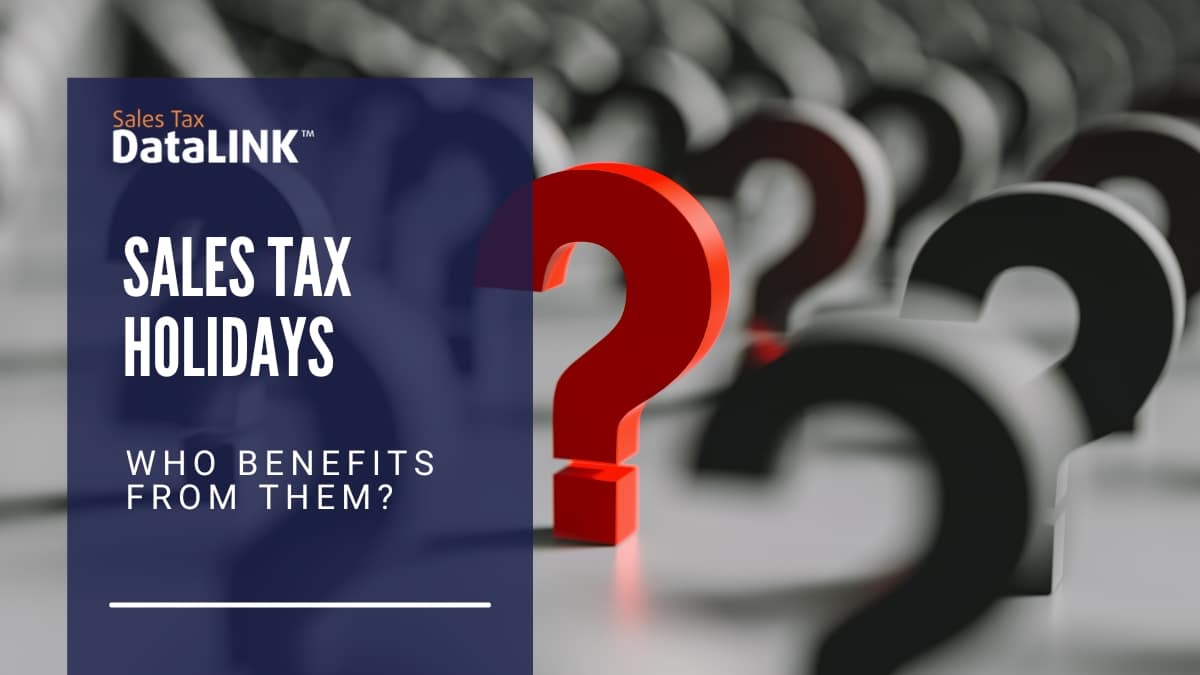The idea of a sales tax holiday can be appealing. Often planned for midsummer or late summer back-to-school season weekends, sales tax holidays are two or three days when residents of a state can shop for certain goods without paying sales taxes. The idea is that consumers benefit because they save money by not paying sales tax. If they spend $100.00 on clothes for back to school, the reasoning goes, they pay just $100.00, not $107.00 or $110.00 as they might usually do. Merchants are supposed to benefit from this, too, because shoppers are expected to buy more goods — they’ll go ahead and spend that $110.00, the thinking goes, and the merchant will keep the extra $10.00 instead of passing it on to the state. The state might even benefit because the consumers will shop locally instead of shopping online to save on sales tax. As they shop for sales tax holiday goods, they’ll also spend on taxable things that aren’t included in the holiday. Actually, financial think tank analysts who’ve studied this say it doesn’t work that way.
On a sales tax holiday, they find, people will spend $100.00 if they were planning to spend $100.00. They just choose to shop on that weekend. Since retailers won’t usually cut prices that weekend — why should they if the government is doing it for them? — Shoppers will pay full price instead of the discount they might get on another weekend. They spend just as much with the merchant, and they don’t get more for their money than they would on another weekend. What’s more, the people who might really notice that 6 or 7 percent difference can’t usually take advantage of sales tax holidays anyway. Poor families living paycheck to paycheck typically have to spread their back-to-school purchases over time rather than splurging on a single weekend. As for the merchants, they don’t benefit because shoppers don’t spend more. In some states, the first sales tax holiday or two did see more shopping, but now shoppers might wait for the holiday, but they will still spend the amount they had planned to spend. After all, they can always shop without sales tax online or they can wait for a discount, so the savings aren’t significant.
In fact, retailers find that shoppers are jaded enough about discounts now that 10% or less has no effect on behavior. Sales tax holidays usually offer no more than 10% savings. Merchants may see more sales on that weekend, but since the total sales for the season are not affected, those extra sales can actually be costly. Retailers may have to pay for extra help and increase inventory. They have to reprogram computers to stop collecting sales taxes for the weekend and return them to normal following the weekend — and that can be complex if they sell both items covered by the sales tax holiday and items on which they must still charge taxes. Then they have to keep track with special vigilance to avoid errors when they file their taxes. The states lose revenue that they have to make up somehow later.
There is no math that makes a sales tax holiday bring in extra revenue for the states. Almost 90% of Americans now shop online at least some of the time. A three-day sales tax break is not going to change that. At best, sales tax holidays offer a brief PR benefit for the politicians who vote for them. The good news? SalesTax DataLINK sales tax filing solutions make all complex sales tax situations — including sales tax holidays — easier. Try our free evaluation now.




